Peter Sagan saving his answers for Paris-Roubaix
World champion faces into a race where he has rarely shone
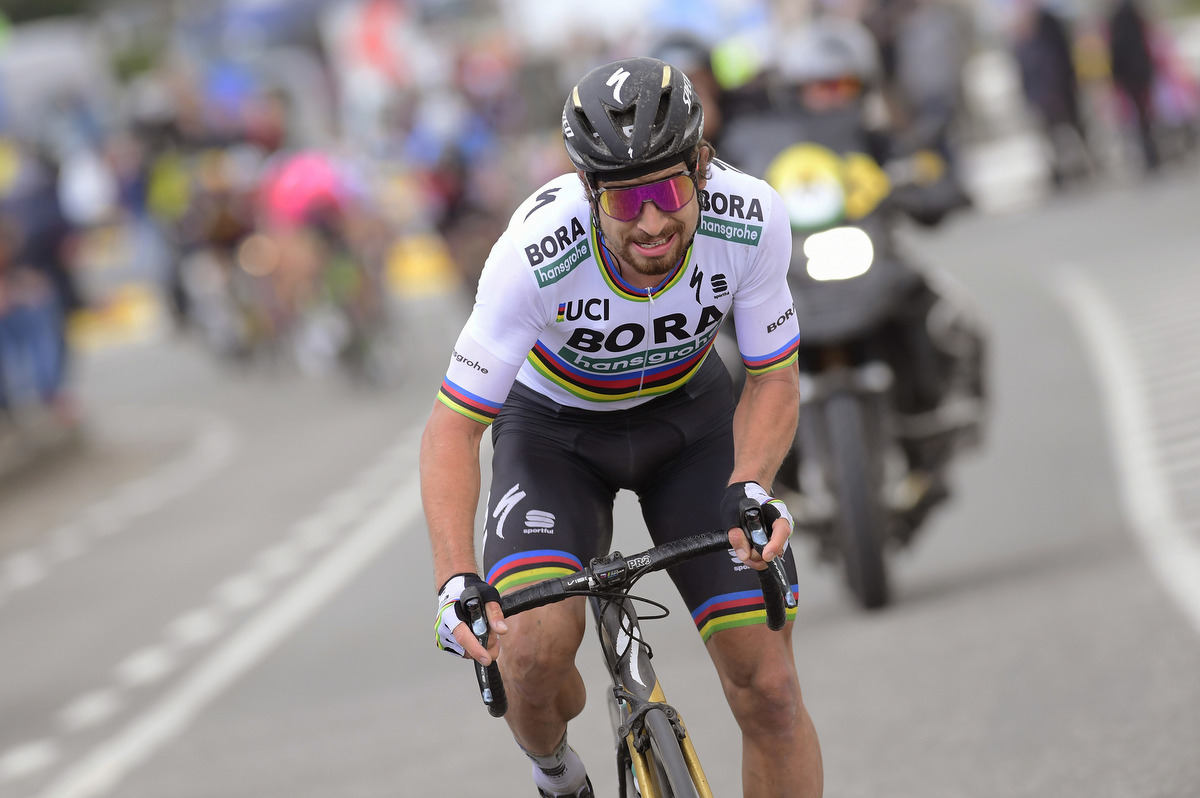
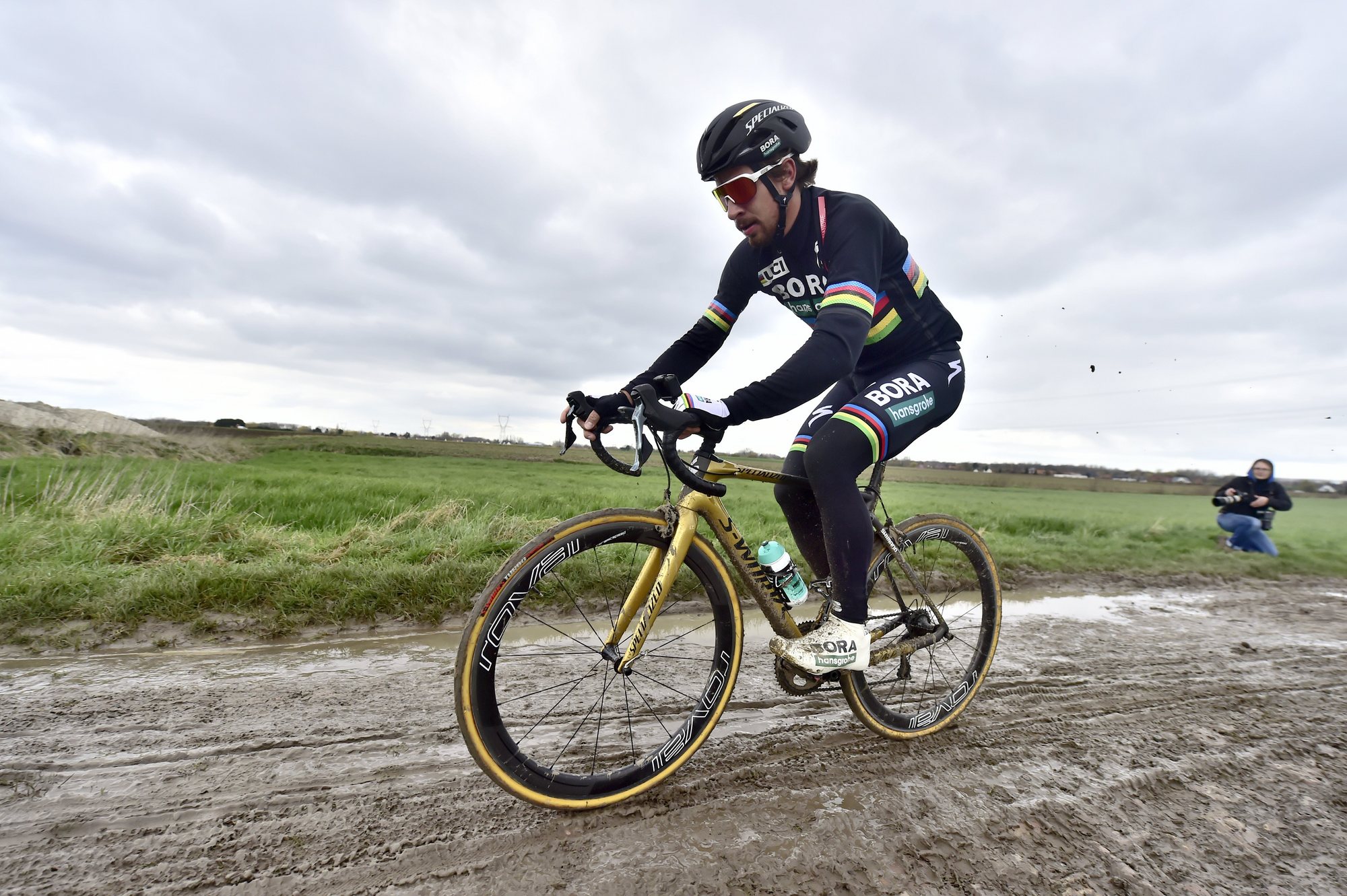
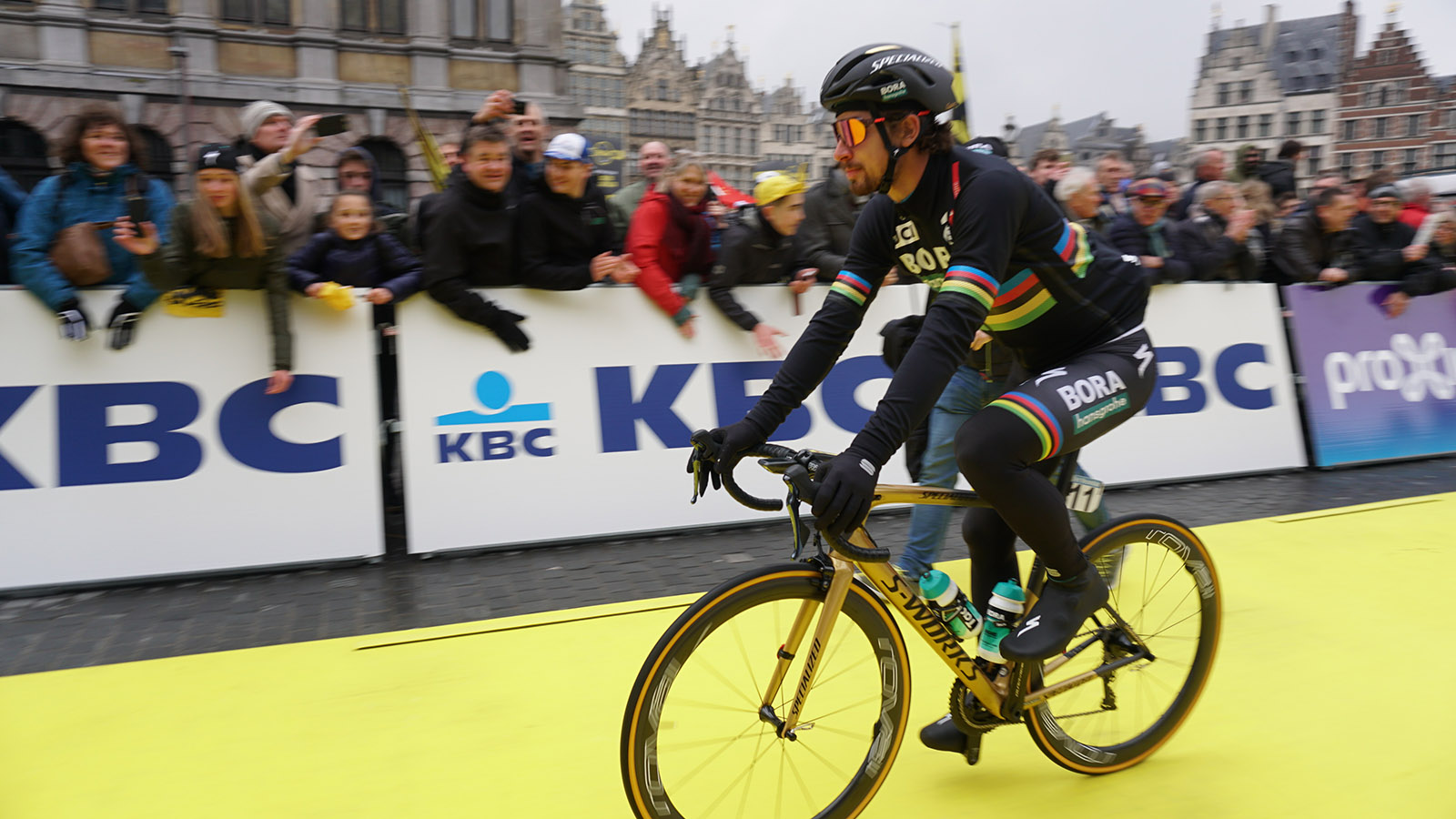
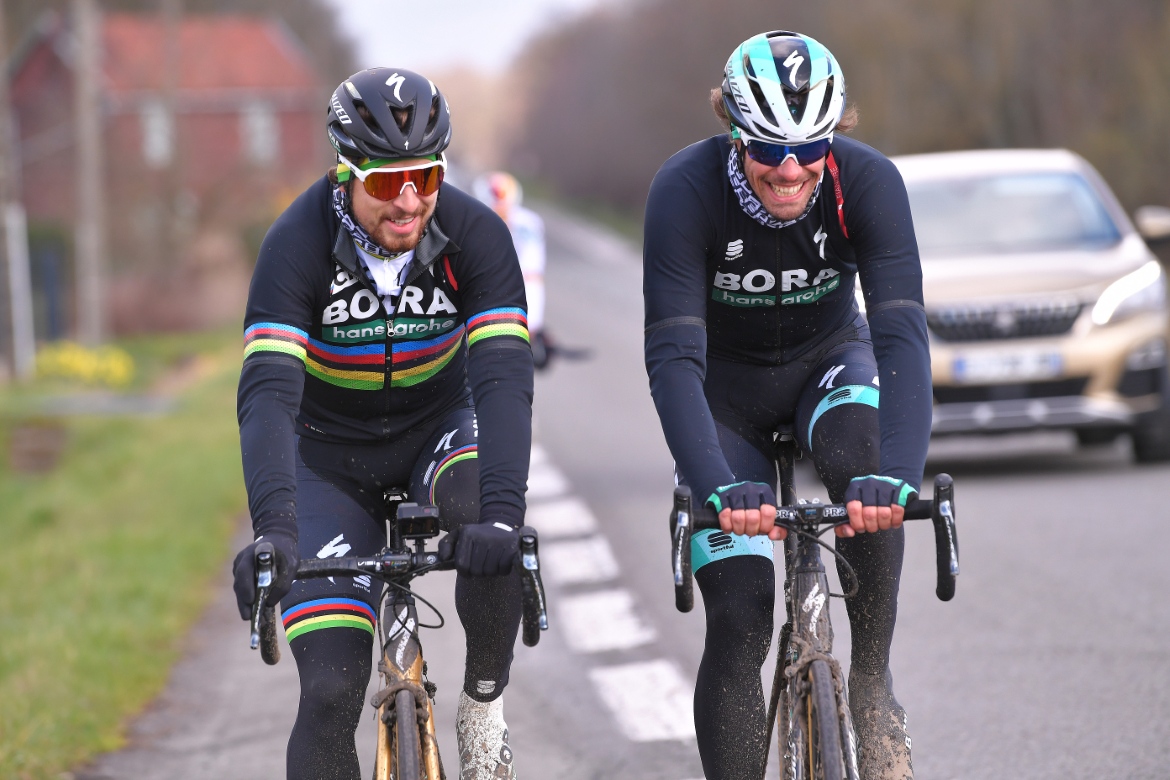
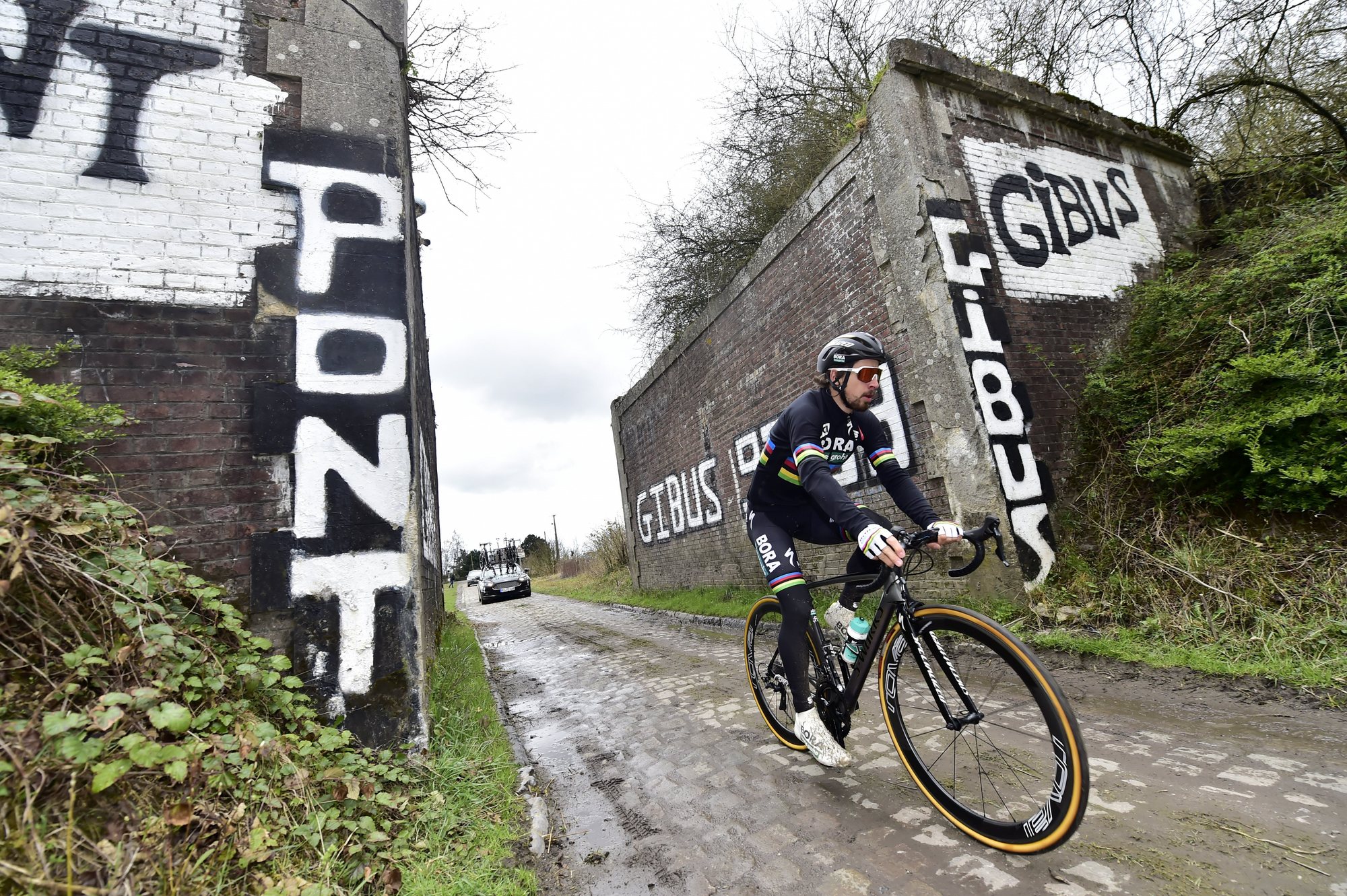
On media day ahead of the Super Bowl in 2015, the then Seattle Seahawks running back Marshawn Lynch made himself available to journalists for his mandatory interview slot, only to answer all 29 of the questions he faced with the same carefully-worded response: "I’m just here so I won't get fined."
Peter Sagan means business at the Tour of Flanders
Peter Sagan and Specialized launch 'Sagan Collection' - Gallery
Sagan: When other riders don't wake up, Quick-Step will win
Peter Sagan into first place on WorldTour rankings after Tour of Flanders
Tom Boonen: Peter Sagan needs to 'keep his mouth shut' over lack of cooperation from rivals
Paris-Roubaix: Van Aert to stay patient until Trouee Arenberg
Questions tend to bounce off Peter Sagan in much the same way these days, and his appearance in the mixed zone at the Paris-Roubaix team presentation in front of the Palais de Compiègne on Saturday afternoon was a case in point. The world champion made his way along the row of television cameras and microphones, pausing briefly at each stop, and saying as little as possible on each occasion.
"Is Paris-Roubaix a fun race to do?" one television reporter asked, hopefully lobbing the gentlest of softball questions in Sagan's direction for starters.
"Yeah, for sure. It's a lot of interesting situations in the Paris-Roubaix. For sure, you're not going to be bored," Sagan said. It was hard to tell if he was more uninterested by the question or his own response.
Asked for a prediction, Sagan said simply, "I don't know what to say." Asked what his own expectations were, he said "To do my best like always."
"Is that a podium or top 10? What is your ambition tomorrow?" the frazzled television reporter asked. "Finish the race, and make my best performance I can do," Sagan said, chortling to himself. End transmission.
Boonen
Sagan was scarcely more effusive in the immediate aftermath of the Tour of Flanders last week, where questions were strictly rationed on the steps of the Bora-Hansgrohe bus, but he said enough to raise the eyebrows of at least one Classics grandee.
Get The Leadout Newsletter
The latest race content, interviews, features, reviews and expert buying guides, direct to your inbox!
Tom Boonen was unmoved by Sagan's lament that he was limited in what he could do against Quick-Step's collective might as he had received "no cooperation" from his rivals in the finale of the Ronde. "They work against me and do not want to cooperate, so Quick-Step can do what it wants," Sagan said, a complaint dismantled by Boonen in a television appearance in Belgium in midweek.
"A lack of cooperation? He is always on someone's wheel," Boonen said. "He always tries to benefit from the work of other teams. There is nothing wrong with that, but then you cannot then say afterwards 'they do not work with me.'"
Sagan's obvious talent is not in dispute – three successive world titles will win just about any argument – but it is also true that he has, by the remarkable standards he has set elsewhere, underachieved in the Monument Classics over the years.
A third Gent-Wevelgem victory two weeks ago means that, unlike just about everybody bar Quick-Step, Sagan already has something to show for his cobbled campaign, yet there is still a sense that he has not shown nearly enough of himself this spring.
At Milan-San Remo, Sagan preferred to wait for the sprint rather than pursue Vincenzo Nibali on the Poggio. He faded at E3 Harelbelke after an early crash. He delegated Daniel Oss to work at the Ronde, but the anticipated onslaught in the finale never quite materialised.
In 2016, Sagan powered up the Kwaremont and then cruised clear alone over the top of the Paterberg to win the Tour of Flanders. Two years on, he opened only a small gap on the Paterberg before being recaptured. There appears to be greater parity among the principal contenders in the final hour of the major Classics, as Heinrich Haussler (Bahrain-Merida) observed on Saturday.
"In Flanders, in the last 20km, even when Sagan and [Greg] Van Avermaet attacked, they can go, but it's not this massive, 900-1000 watts power like it used to be," Haussler said. "The playing field is more even. You see the same 15-20 guys up there in every races, whereas in the last years it was only two, three, four or five guys."
Road to Roubaix
A numerical disadvantage has not been a problem for Sagan at the World Championships, where he has been accompanied each year by a devoted but light Slovakian team, but this spring, nobody has quite figured out how to escape the smothering blanket laid down by Quick-Step Floors, who have typically had four riders in the decisive selection.
Paris-Roubaix, of course, is a race unlike any other, where tactical considerations can be rendered moot by an untimely puncture here or a heavy tumble there. Back in the mixed zone in Compiègne, however, Sagan was not much minded to expand on the differences in his approaches to the Tour of Flanders and the Hell of the North.
"For sure, yeah, it's a different race from Flanders and I think in the end, it could also be much harder than you can expect. In the Flanders, you can be dropped on the climbs and here you can be dropped on the flat," Sagan said with a hollow laugh.
Sagan's dextrous bike handling skills, his background in mountain biking and his success on Flemish cobbles suggest a natural aptitude for the challenges of Paris-Roubaix, but his record in the Queen of the Classics is a curiously underwhelming one.
He abandoned as a neo-professional in 2010 and finished 86th a year later, only returning in 2014, when he produced his best display by riding aggressively to 6th place. After placing 23rd in 2015, he spectacularly avoided a crash en route to 11th in 2016, and fell victim to a brace of punctures a year ago, placing 38th.
Can Sagan fare better this time around? Can Quick-Step’s dominance be broken? Does he have an idea of how he can win Paris-Roubaix? The last person to ask, it seems, is Sagan himself.
"I don't know, I never won it," Sagan said. "What can I say?"

Barry Ryan was Head of Features at Cyclingnews. He has covered professional cycling since 2010, reporting from the Tour de France, Giro d’Italia and events from Argentina to Japan. His writing has appeared in The Independent, Procycling and Cycling Plus. He is the author of The Ascent: Sean Kelly, Stephen Roche and the Rise of Irish Cycling’s Golden Generation, published by Gill Books.